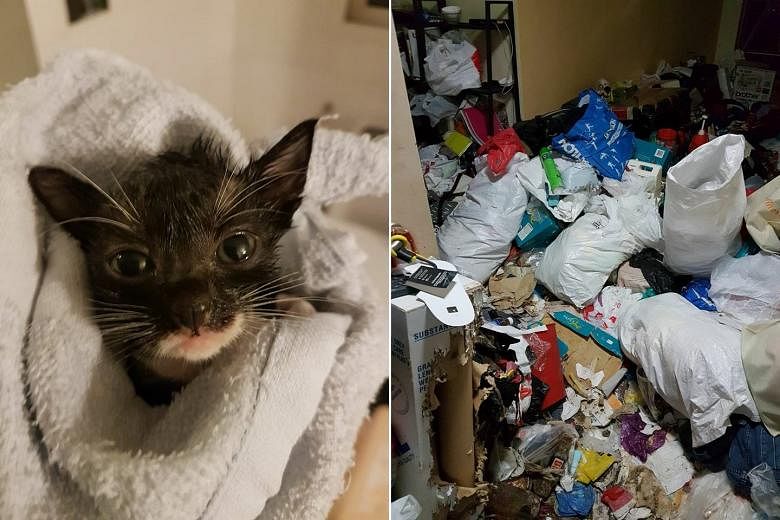SINGAPORE - Twelve kittens and seven adult cats have died from a virus after being rescued from a cat hoarder's home in Chua Chu Kang, Cat Welfare Society (CWS) executive director Laura Ann Meranda told The Straits Times on Monday (July 10).
A total of 15 kittens and 22 adult cats were found in a Housing Board flat in Chua Chu Kang last month (June), she said.
The felines have been evacuated, but they were all battling parvovirus or feline distemper, a highly contagious and deadly viral infection that attacks blood cells and leaves the animals vulnerable to other infections.
Ms Meranda said the case was referred to CWS by the HDB after it got complaints from residents, and the owner of the cats - a 49-year-old woman who lives alone - sought help.
The adult cats exhibit no symptoms, but symptoms such as vomiting and diarrhoea manifested in the kittens, and only three of the 15 kittens have survived and are now with fosterers.
Asked about why hoarding happens, Ms Meranda attributed it in this case to mental illness. She said the cat owner had a depressive episode and lost her job.
"We are asking for a psychological assessment by a family service centre at the Institute of Mental Health," she said. "They are going in with us on Wednesday to visit the family together with us."
Just last month, 94 cats were evacuated from a flat in Sengkang in another hoarding case.
Ms Meranda said those cats - mostly Siamese - are not ready for adoption yet, as they were "neglected for a long time so rescuers are still spending time to rehabilitate them".
She said hoarding is a serious issue and CWS is "seeking all avenues including the law, community, social welfare and mental health avenues that can most effectively address the risk of reoccurrence and relapse".
"Without this, all efforts now come to naught when they allow this to happen again to the next batch of animals."
ST has contacted IMH for more information.


